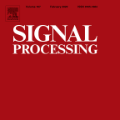Countless signal processing applications include the reconstruction of signals from few indirect linear measurements. The design of effective measurement operators is typically constrained by the underlying hardware and physics, posing a challenging and often even discrete optimization task. While the potential of gradient-based learning via the unrolling of iterative recovery algorithms has been demonstrated, it has remained unclear how to leverage this technique when the set of admissible measurement operators is structured and discrete. We tackle this problem by combining unrolled optimization with Gumbel reparametrizations, which enable the computation of low-variance gradient estimates of categorical random variables. Our approach is formalized by GLODISMO (Gradient-based Learning of DIscrete Structured Measurement Operators). This novel method is easy-to-implement, computationally efficient, and extendable due to its compatibility with automatic differentiation. We empirically demonstrate the performance and flexibility of GLODISMO in several prototypical signal recovery applications, verifying that the learned measurement matrices outperform conventional designs based on randomization as well as discrete optimization baselines.
翻译:有效的测量操作员的设计通常受到基本硬件和物理的制约,这构成了一项具有挑战性的、甚至往往是分散的优化任务。虽然已经展示了通过迭代恢复算法的滚动进行基于梯度的学习的潜力,但当一套可受理的测量操作员结构化和离散时,仍然不清楚如何利用这一技术。我们通过将非滚动优化与Gumbel再平衡化相结合来解决这一问题,从而能够计算绝对随机变量的低变差梯度估计值。我们的方法由GLODISMO(基于对DISCRE 结构测量操作员的高级学习)正式确定。这种新颖的方法易于实施,具有计算效率,并且由于与自动区分的兼容性而可以推广。我们实证地展示了GLODISMO在若干原型信号恢复应用中的性能和灵活性,核查所学的测量矩阵是否超越基于随机化和离散优化基线的常规设计。


